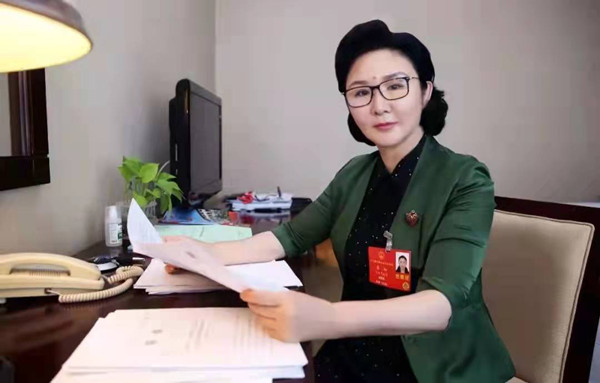Jilin deputy focuses on education reforms

Qin He is a deputy to the 13th NPC and is president of Jilin International Studies University. [Photo provided to gojilin.gov.cn]
Qin He, a deputy to the 13th National People's Congress or NPC, has submitted motions on education reforms including those on the new double reduction policy, promoting traditional Chinese culture on school campuses and education in rural areas.
The double reduction initiative is an education law passed last year that seeks to cut the "twin pressures" on students of excessive homework and off-site tutoring in core subjects. The new rules barred for-profit tutoring in core school subjects offered by private education firms, in what was a multi-billion-dollar industry.
According to Qin's motions, after the full implementation of the double reduction policy, efforts should be made to improve the quality of teaching at schools, as well as the quality of after-school services.
She said efforts should also be made to deepen the reforms of examinations and evaluations. On one hand, it was necessary to promote classification examinations. On the other hand, examinations should focus on examining students' mastery of basic knowledge and basic methods, and examining students' logical thinking ability and knowledge application ability.
In the current curriculum system of primary and secondary schools, the content of traditional Chinese culture was mainly reflected in the courses on Chinese, history, calligraphy and art, lacking overall systematic design, she said. Qin suggested the compilation of a guide to Chinese traditional culture for primary and secondary school students.
China currently has hundreds of thousands of rural schools including kindergartens, millions of rural teachers and nearly 100 million rural students. However, from the perspective of development levels, Qin said, rural education was still the weakest link in domestic education.
As a result, Qin considered it necessary to continue to increase investment in rural education, comprehensively improve the overall quality of rural teachers and make better overall use of rural educational resources.
